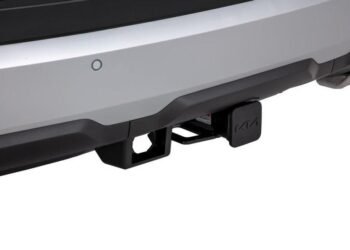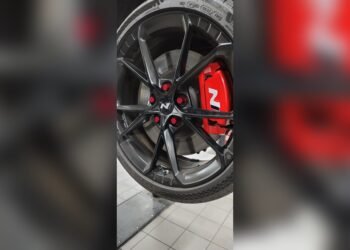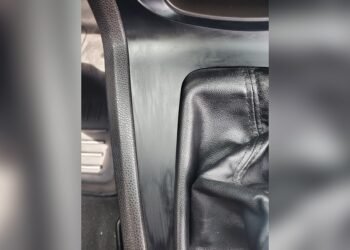Are you wondering if GMC rims will fit your Chevy? It’s a common question among truck and SUV owners who want to upgrade their wheels without breaking the bank.
Since GMC and Chevy both belong to General Motors, many people assume their rims are interchangeable—but is it really that simple? The answer depends on a few key factors like bolt pattern, hub bore size, and wheel offset. You’ll discover exactly what you need to check to make sure your GMC rims fit perfectly on your Chevy.
Keep reading to avoid costly mistakes and get the right fit for your ride!
Gmc And Chevy Wheel Compatibility
GMC and Chevrolet vehicles share many design features. This includes their wheels. Because both brands belong to General Motors, their wheels often fit each other’s models. Still, compatibility depends on exact specs. Checking these details avoids fitment problems and safety risks.
Understanding how GMC rims fit Chevy trucks or SUVs helps with upgrades or replacements. Knowing bolt patterns, hub bore sizes, and wheel offset keeps the process simple. This knowledge ensures smooth wheel swaps without costly mistakes.
Shared Bolt Patterns
Both GMC and Chevy use the same bolt patterns for many models. This pattern is the number and spacing of lug nuts on the wheel. For example, many GMC and Chevy trucks have a 6×139.7 mm bolt pattern. Matching bolt patterns allow wheels to mount securely on either vehicle.
Confirming the bolt pattern is the first step before fitting GMC rims on a Chevy. Some smaller Chevy models may have different patterns. Always check the exact year and model for precise information.
Hub Bore Sizes
The hub bore is the center hole size of the wheel. It fits over the vehicle’s hub and centers the wheel. GMC and Chevy trucks often share the same hub bore size, allowing wheels to fit well. A proper hub bore prevents vibration and ensures safe driving.
Using a wheel with a smaller hub bore than the vehicle’s hub causes mounting problems. A larger hub bore can be fixed with centering rings. Verifying this size keeps your wheels balanced and stable.
Offset Considerations
Wheel offset is the distance between the mounting surface and the wheel center. It affects how the wheel sits inside the wheel well. GMC and Chevy vehicles may have similar but not always identical offsets. Incorrect offset can cause rubbing on suspension parts or poor handling.
Check the offset value of the GMC rims and compare it to your Chevy’s specs. A close match keeps the wheels aligned correctly. Minor differences can be adjusted, but large gaps should be avoided for safety.
Key Compatibility Factors
Understanding key compatibility factors helps decide if GMC rims fit a Chevy. Matching wheels requires checking specific details. These details affect safety, performance, and fit. Three main factors determine rim fit: bolt pattern, hub bore, and wheel offset. Each plays a vital role in compatibility.
Bolt Pattern Details
Bolt pattern means the number and position of lug holes on a rim. Both GMC and Chevy trucks often share the same bolt pattern. This is common because they come from the same parent company, General Motors. Still, always check exact measurements. A mismatch causes the rim not to mount properly or safely.
Hub Bore Importance
The hub bore is the center hole diameter of the rim. It fits over the vehicle’s hub to center the wheel. Most GMC and Chevy trucks have matching hub bore sizes. If the hub bore is too small, the rim won’t fit. If it’s too large, the wheel may vibrate. Proper hub bore ensures stability and smooth driving.
Wheel Offset Impact
Wheel offset is the distance from the hub mounting surface to the rim’s centerline. It controls how far the wheel sticks out or sits inward. GMC and Chevy rims may have different offsets depending on model and year. Incorrect offset can cause rubbing on suspension or body parts. It also affects handling and tire wear. Confirm offset matches your Chevy for safe driving.
Steps To Verify Fitment
Verifying the fitment of GMC rims on a Chevy requires careful steps. Each vehicle has unique specifications that affect compatibility. Following these steps helps avoid problems like poor fit or damage. Ensure your rims match your Chevy’s requirements before installation.
Identify Vehicle Specs
Start by noting your Chevy’s year, make, and model. Check the GMC vehicle’s specs where the rims came from. This info helps compare important details like size and design. Accurate vehicle specs prevent mismatches and fitment issues.
Confirm Bolt Pattern And Hub Bore
Measure the bolt pattern on both the GMC rim and your Chevy. Bolt pattern means the number and spacing of lug holes. Also, check the hub bore size, the center hole diameter. Both must match for the rim to fit securely on your Chevy.
Check Tire Clearance
Place the rim and tire on the Chevy to test clearance. Make sure tires do not rub against the wheel well or suspension parts. Proper clearance avoids damage and ensures safe driving. Check clearance on all sides of the wheel.
Assess Offset Range
Offset is the distance between the wheel’s mounting surface and its centerline. Confirm the GMC rim’s offset falls within your Chevy’s acceptable range. Correct offset keeps the wheel aligned and prevents it from sticking out or sitting too deep.
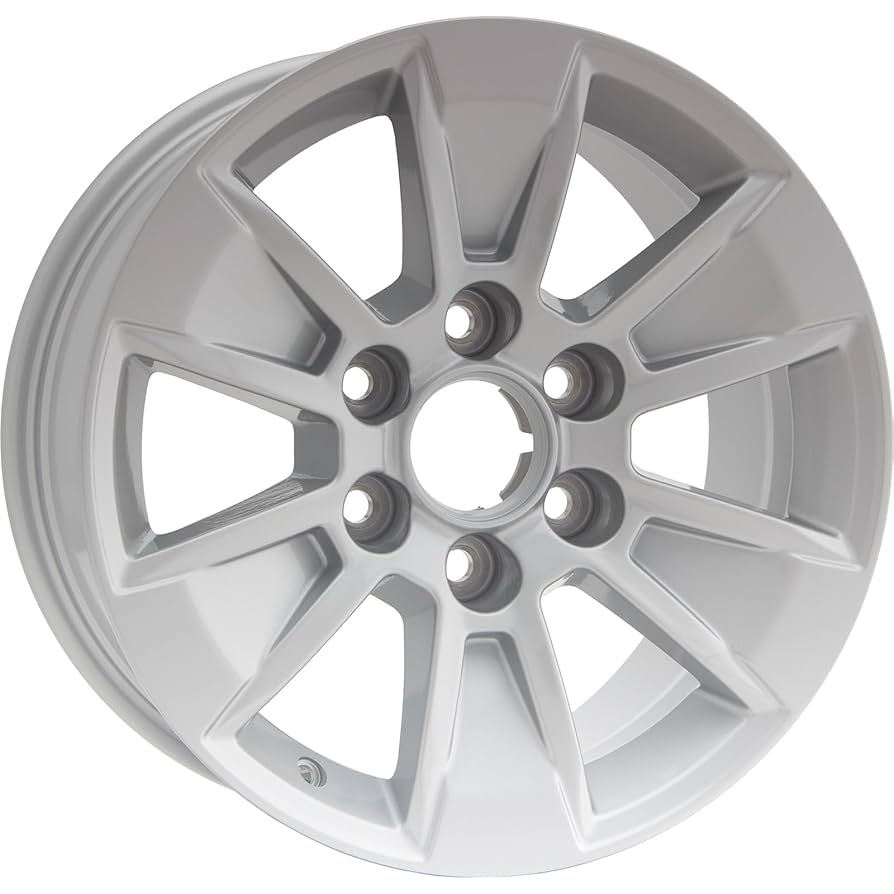
Credit: www.amazon.com
Common Bolt Patterns For Gmc And Chevy
GMC and Chevy vehicles often share common bolt patterns. This similarity makes many rims interchangeable between the two brands. Understanding these bolt patterns is key to choosing the right rims. Each model may have different lug patterns based on its size and purpose.
Knowing the bolt pattern helps avoid fitment problems. It also ensures safety and proper wheel alignment. Below, we explore common bolt patterns for GMC and Chevy models.
Heavy-duty Model Patterns
Heavy-duty GMC and Chevy trucks use larger bolt patterns. The most common pattern is 8×180 mm. This means eight lug nuts spaced in a circle with a diameter of 180 mm. These trucks include models like the GMC Sierra 2500HD and Chevy Silverado 2500HD. Their wheels are designed to handle heavy loads and tough conditions.
Denali Lug Patterns
Denali models, a luxury trim from GMC, share bolt patterns with their Chevy counterparts. Most Denali trucks use a 6×139.7 mm pattern. This pattern is common for many mid-size and full-size trucks. It balances strength and ease of wheel selection. Denali wheels often come with unique styling but fit standard bolt patterns.
Silverado Lug Patterns
Chevy Silverado trucks mostly use the 6×139.7 mm bolt pattern. This pattern fits many GMC models as well. Silverado light-duty models like the 1500 use this pattern. It allows for many rim options across both brands. This commonality helps owners swap rims without major modifications.
Why Correct Fitment Matters
Correct fitment of GMC rims on a Chevy vehicle is crucial. It affects the wheel’s performance and your driving safety. Even though GMC and Chevy share many parts, not all rims fit perfectly. Proper fitment ensures the wheels mount securely and work well with the vehicle’s suspension and brakes. Poor fitment can lead to problems that cost money and risk your safety.
Ensuring Proper Mounting
Proper mounting means the rim fits tightly on the vehicle’s hub. The bolt pattern must match exactly to avoid wobbling. The hub bore size should be correct so the rim centers well. If the rim is loose or not centered, it can cause vibrations. This affects handling and can wear out tires unevenly. Checking these dimensions before installation prevents future issues.
Safety Risks Of Mismatched Rims
Mismatched rims can cause serious safety hazards. Wheels that do not fit well may come loose while driving. This can lead to loss of control and accidents. Incorrect offset can cause the wheel to rub against the car’s body or suspension. Such rubbing damages parts and reduces vehicle stability. Always use rims that meet the vehicle’s specifications to keep driving safe.

Credit: www.ebay.com
Tools And Resources For Measurement
Accurate measurements are key to knowing if GMC rims fit a Chevy. Using the right tools avoids guesswork and potential damage. These tools help check bolt patterns, hub bore size, and wheel offset. Understanding each measurement keeps the fit safe and smooth.
Measuring Bolt Patterns
Bolt pattern shows how many bolts the wheel uses and their spacing. Use a bolt pattern gauge or ruler. Measure from the center of one bolt to the center of the bolt directly across. Write down the number of bolts and distance in millimeters.
Finding Hub Bore Size
The hub bore is the hole at the wheel’s center. It fits over the vehicle’s hub. Use a caliper to measure the diameter. The hub bore must match the Chevy’s hub diameter. A larger or smaller bore causes vibration or poor fit.
Checking Wheel Offset
Wheel offset is the distance between the wheel’s mounting surface and its centerline. Use an offset gauge or measure manually with a ruler and caliper. Positive, negative, or zero offset affects how the wheel sits. Confirm the offset matches your Chevy’s specifications to prevent rubbing or poor handling.
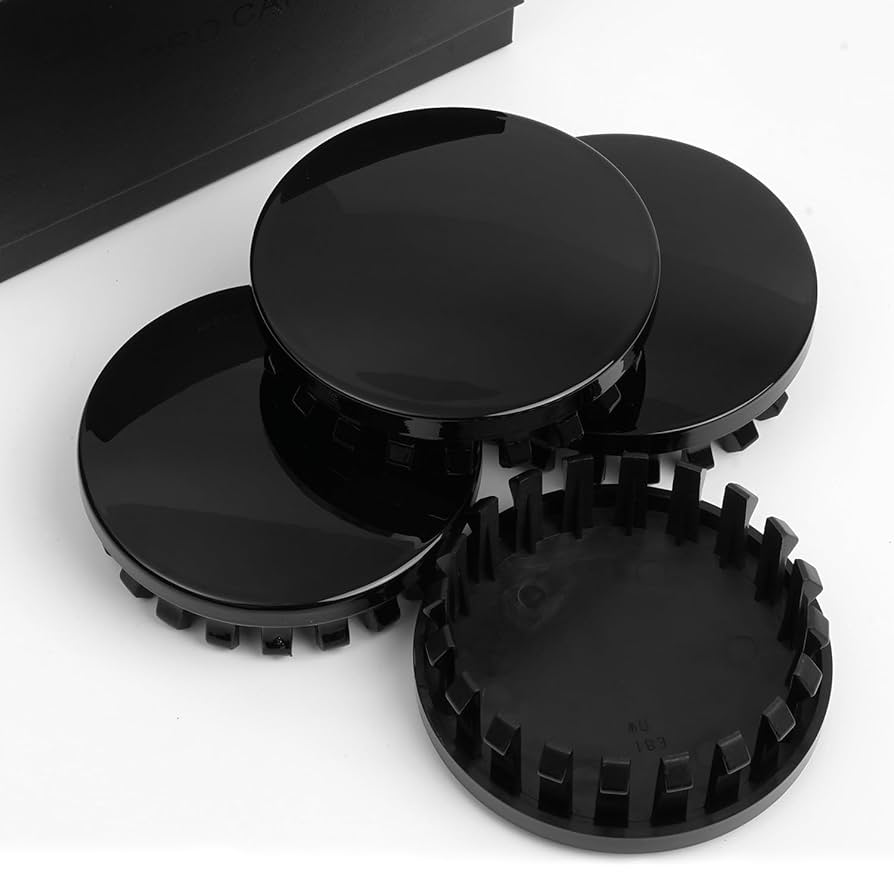
Credit: www.amazon.com
Frequently Asked Questions
Will Gmc Rims Fit On A Chevy?
Yes, GMC rims often fit Chevy vehicles due to shared bolt patterns and hub sizes. Verify your vehicle’s make, model, year, bolt pattern, hub bore, and offset for proper fit. Ensuring these specs match prevents clearance and safety issues.
What Bolt Pattern Does Gmc Use?
GMC commonly uses a 6×139. 7 mm (6-lug) bolt pattern on trucks and SUVs. Some models may have 5×120 mm (5-lug) patterns. Always check your specific vehicle’s year and model to confirm the exact bolt pattern before fitting wheels.
Will Gmc Parts Fit A Chevy?
GMC parts often fit Chevy vehicles due to shared designs under General Motors. Check model, year, bolt pattern, hub bore, and offset for compatibility.
Is A Gmc Truck The Same As A Chevy?
GMC trucks and Chevy trucks share many components because both belong to General Motors. They have similar designs but different branding and features.
Will Gmc Rims Fit All Chevy Models?
GMC rims fit many Chevy models, especially trucks and SUVs, but check bolt pattern and size first.
Conclusion
GMC and Chevy rims often fit each other due to shared designs. Always check your vehicle’s year, model, and rim specs. Confirm the bolt pattern, hub bore, and offset before swapping. Proper fit avoids issues like rubbing or poor handling.
Taking these steps ensures safe and smooth wheel installation. This simple guide helps you make the right choice for your truck or SUV.


